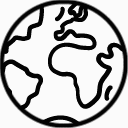

In 2016, the partnership released two reports illustrating the gap between water policy and implementation in Bangladesh and how it is likely to affect the country’s economic growth. The reports acted as a catalyst for a new program set to focus on water issues.
Bangladesh is a major producer of clothing for EU and US markets – being one of H&M Group’s main textile supplying countries – and the apparel sector is vital for the Bangladesh economy. However, textile and leather processing have significant negative impacts on water sources, leading to environmental degradation and potential health problems for people.
Between 2013-2016, WWF and H&M Group carried out a program of activity on water stewardship and water governance in Bangladesh. In 2016, WWF, supported by H&M Group, released two investigative reports; one report analyzed water governance gaps in Bangladesh and the other examined likely economic outcomes from varying water governance scenarios.
“Report findings showed that the gap between water policy and implementation in Bangladesh was likely to affect the country’s GDP, living standards, food security and textile export growth by 2030. Taking action on water governance could not only reduce costs, such as on health care and irrigation, but also protect production sites in industrial areas from running out of usable water”, said Harsh Sheth, water stewardship manager at WWF.
The report findings contributed to the introduction of the Bangladesh Water Multistakeholder Partnership (BWMSP) in Bangladesh, consisting of public, private and civil society hosted by 2030 Water Resources Group (2030 WRG). The 2030 WRG Bangladesh program’s goal is to improve water resources management in the urban, industrial and agricultural sectors through collaborative transformative actions.
H&M Group engages in the platform
Since 2017, H&M Group is a member of the national steering board of the multistakeholder partnership in Bangladesh.
”Collaboration is fundamental when it comes to industry-wide challenges such as water management. Through WRG, H&M Group is participating in an important multi-stakeholder dialogue on water that focuses on several important topics such as governance, industrial water use and wastewater. We look forward to working closely with WRG to achieve impact”, said Saurabh AgarwaI, Market Innovation and Capacity Development Manager at H&M in Bangladesh.
The company is engaged in workstreams on “water governance and sustainability” and “industrial water and wastewater”. The former stream has initiated a study on shadow prices to identify the true value of water, which is to be used in public sector investment planning. In the latter workstream, H&M Group has been part of developing Green Economic Zone Guidelines to set requirements for Economic Zones to comply with green and resilient growth. Once approved, this guideline will be applicable for all public and private Economic Zones.
”The collaboration with H&M has been key for us to convene multi-stakeholder partners in the textile sector in Bangladesh, including prominent textile factories and international brands. We have discussed sector-specific and national-level strategies and actions to improve the corporate water footprint, support watershed replenishment and compliance with international standards”
Karin Krchnak, Program Manager, 2030 WRG
